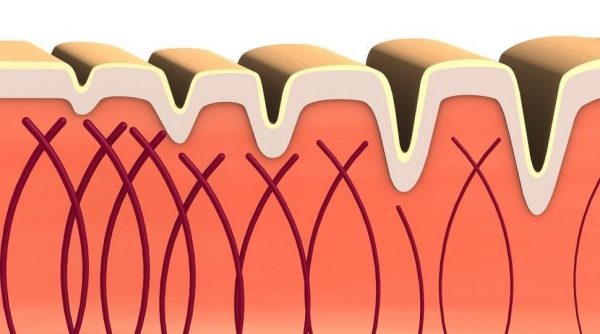The rate of skin aging, thus the loss of elastin and collagen multiplies during the menopausal change of life. The cause of this unfavorable process is mostly related to the gradual decrease in estrogen levels. However, by preparing in time, and by conducting a conscious lifestyle, the change of life will not bring the end of youth
Change of life
Menopause is an important stage in women’s lives. Not only because the possibility of natural conception is terminated, but also because as estrogen levels fall, the female body goes through a number of additional biological changes associated with unpleasant symptoms. Depending on the individual, milder or more intense heat waves, fatigue, and emotional lability may occur. However, the most visible of the changes is the skin aging.
Skin health
Our skin is important not just only for the beauty. Since it is our largest organ, its condition is closely related to our health. The skin is the primary defense system of our body, it must respond quickly and effectively to injuries and keep out pathogens that are trying to enter.
Healthy, well-functioning skin is characterized by being brightly toned, soft and elastic to the touch, relatively smooth on the surface, and adequately hydrated.
Several component work together to maintain the right structure. The most important structural elements are collagen, elastin, hyaluronic acid, and proteoglycans, and normal function is harmonized as a conductor by estrogen.

Skin aging
As it fills the space between cells, collagen gets less protection, making it an excellent target for free radicals. By attaching to the collagen, the free radicals create so called superoxides, making the collagen fibers fragile and prone to fragmentation into smaller pieces. The source of free radicals can be e.g. UV-radiation, tobacco smoke or other environmental pollutants, so we are constantly exposed to their damaging effects. In addition, collagen has a natural aging and replacement in the body, thus for continuous renewal, collagen degradation and collagen synthesis take place in parallel.
With age, hormonal changes begin to upset the balance between the recovery and breakdown of collagen fibers, the skin loses from its elasticity, and becomes more wrinkled and drier.
- After the age of 25-30, skin cells (fibroblasts) produce approx. 1% less collagen every year;
- in women, the rate of collagen loss is increased around the menopause;
- in the 5 years following menopause, collagen production decreases by 30%;;
- and thereafter, an additional 2% less collagen is produced per year.
According to a study, the skin of people over the age of 80 showed a 68% decline in collagen synthesis compared to the skin of adults under the age of 30.

Collagen loss can be blocked and reversed, and it matters how!
For more severe menopausal symptoms, hormone therapy is often recommended. Estrogen supplementation also stimulates the synthesis of collagen and elastin, resulting in skin collagen replenishment, thus skin becomes thicker, more vibrant, and more youthful. With the extra estrogen, bone density may increase in parallel, meaning that the bones will be less fragile. However, hormone therapy, especially if it lasts longer and is not personalized, can have serious long-term health side effects. The risk of heart failure, blood clots and stroke increases as well as the incidence of certain tumors, therefore it should be used only after consultation with a doctor, and only under strict medical supervision.
Natural collagen replenishment
Fortunately, the collagen that gives the structure of the skin and the hyaluronic acid responsible for hydration can be replenished in a completely safe form as a dietary supplement. Experience has shown that both pre-menopausal and post-menopausal women can reduce the depth of their wrinkles that have already formed, and increase skin hydration due to increased collagen and hyaluronic acid synthesis. The advantage of encapsulated collagen over lotions is that while lotions usually only act on the skin surface where they are applied, the consumed collagen and hyaluronic acid building blocks reach the entire skin through the bloodstream.
Of the anti-aging collagen preparations, the use of collagen peptides from marine fish is growing most dynamically because they are more efficiently absorbed through the intestines than bovine and porcine collagen, and they are also considered safer.
What about men?

With age, the hormone levels decrease in men as well, but this change is mostly not so visible, it can often be noticed from the loss of libido and the appearance of erectile dysfunction. Hormonal changes lead to skin aging also in men over the age of 50. The synthesis of collagen and elastin can be increased in a similar way to women, by consuming collagen hydrolysates, thus slowing down skin aging is achievable.
The menopausal change of life is a complex set of mental and physical symptoms that can occur to varying degrees to each individual. As hormone levels fall, skin aging accelerates. Although nowadays almost everything is about youthfulness and energeticness, let us not forget that the skin is also the organ that protects our health and therefore requires special attention. The deterioration of our skin can be controlled by collagen replenishment and can even be reversed to some extent. In parallel with the use of collagen as a dietary supplement, the combined consumption of hyaluronic acid or isoflavonoid-containing plants may have an outstanding skin rejuvenating effect. It is advisable to start using the products as soon as possible, before menopause develops.
Scientific literature about skin aging and estrogens under the link:

